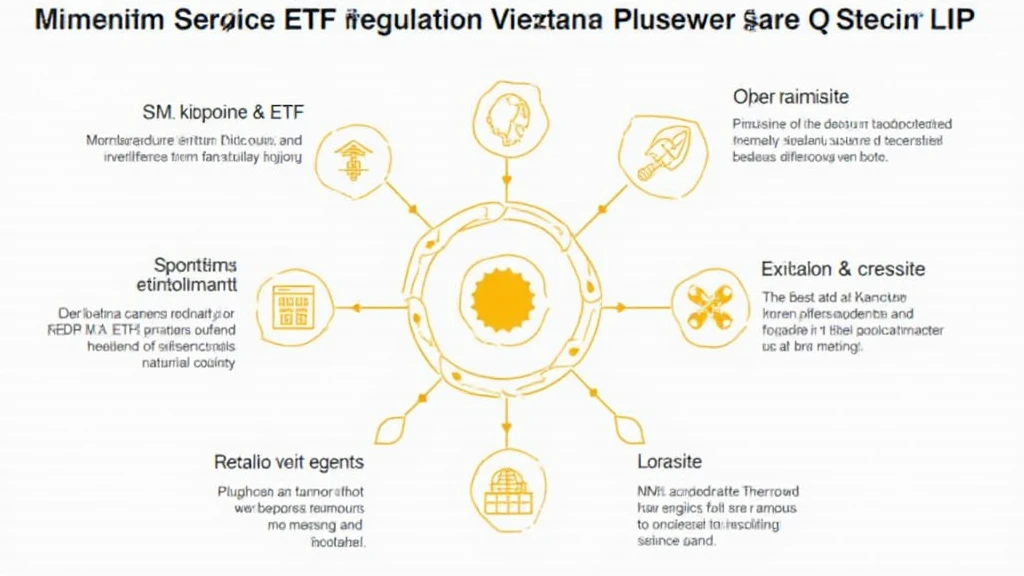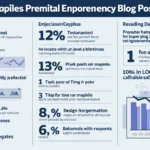Vietnam’s Bitcoin ETF Regulatory Landscape: An Insightful Overview
As Vietnam navigates the ever-evolving landscape of cryptocurrencies, the potential introduction of a Bitcoin ETF (Exchange Traded Fund) is capturing significant attention. With the global cryptocurrency market capitalization surpassing $1 trillion and increasing adoption rates among Vietnamese investors, the demand for regulatory clarity has never been more pressing. This article aims to break down the regulatory framework surrounding Bitcoin ETFs in Vietnam, exploring its implications, benefits, challenges, and what the future may hold for investors.
Understanding Bitcoin ETFs: A Primer
Before diving into the regulatory framework, it’s essential to understand what a Bitcoin ETF entails. A Bitcoin ETF allows investors to trade shares that represent a specific quantity of Bitcoin without the necessity of owning the physical asset. This product provides an avenue for traditional investors to participate in the cryptocurrency market while mitigating some of the inherent risks.
- Accessibility: Retail investors can gain exposure to Bitcoin without needing to navigate complex wallets or exchanges.
- Liquidity: ETFs can be traded on stock exchanges like any other security, offering liquidity to investors.
- Regulatory oversight: ETFs are subject to stringent regulations, potentially enhancing investor confidence.
Current State of Cryptocurrency Regulation in Vietnam
Vietnam has been taking incremental steps toward establishing a more comprehensive regulatory environment for cryptocurrencies. The country’s regulatory approach is characterized by a cautious yet proactive stance, focusing on consumer protection and market integrity.

- Central Bank’s Position: The State Bank of Vietnam (SBV) has maintained a ban on using cryptocurrencies as a legal method of payment. However, it recognizes the need for regulation to protect users and ensure market stability.
- Draft Regulations: Recent drafts from the Ministry of Finance hint at potential pathways for regulated cryptocurrency products, including ETFs.
- Tax Implications: Vietnam has begun to implement tax policies targeting cryptocurrency transactions, further solidifying their position in the financial ecosystem.
Potential Regulatory Framework for Bitcoin ETFs in Vietnam
The introduction of a Bitcoin ETF in Vietnam hinges on the establishment of a robust regulatory framework. Below are the critical components that would likely shape such a framework:
1. Licensing and Registration
To operate as a Bitcoin ETF, funds would need to undergo a rigorous licensing process monitored by the State Securities Commission. This process would ensure that only compliant entities can offer such products, thereby protecting investor interests.
2. Custodial Requirements
Custodians play a vital role in holding the underlying assets of the ETF. Regulations would likely mandate secure storage solutions, potentially leveraging advanced technologies such as cold storage wallets.
3. Investor Eligibility
Regulatory bodies may establish specific criteria for eligible investors, particularly for retail versus institutional investors. This could ensure that less experienced investors fully understand the risks associated with cryptocurrency investments.
4. Consumer Protection Measures
Ensuring consumer protection will be paramount. Regulations may include disclosure requirements and risk warnings, mirroring practices common in traditional finance.
Implications for Vietnamese Investors
The establishment of a Bitcoin ETF could significantly impact Vietnam’s investor landscape:
- Broadened Access: More investors could gain exposure to Bitcoin as ETFs lower the barriers to entry.
- Legitimization: An official framework would lend credibility to the cryptocurrency market, attracting more traditional investors.
- Market Growth: Increased investment in Bitcoin could lead to greater liquidity and price stability in Vietnam’s crypto market.
Challenges to Implementation
Despite the potential benefits, several challenges may impede the implementation of a Bitcoin ETF in Vietnam:
- Regulatory Uncertainty: The lack of a clear and consistent regulatory framework can deter potential fund managers.
- Market Volatility: Bitcoin’s historical price volatility may pose challenges for regulatory approval.
- Public Perception: The public’s skepticism toward cryptocurrencies, rooted in security concerns and scams, may hinder adoption.
Global Trends Influencing Vietnam’s ETF Strategy
Vietnam is not isolated in its journey toward Bitcoin ETF regulation. Several global trends are influencing the country’s strategy:
- Successful Launches in Other Markets: Countries like Canada and the US have successfully launched Bitcoin ETFs, providing a roadmap for Vietnam.
- Growing Institutional Interest: Major financial institutions are increasingly investing in cryptocurrencies, setting a precedent for developing regulated offerings.
- Technological Advances: Innovations in blockchain and security practices are paving the way for safer and more efficient ETF structures.
Looking Ahead: The Future of Bitcoin ETFs in Vietnam
As Vietnam approaches a critical juncture in its regulatory journey, the future of Bitcoin ETFs appears promising. The following factors will play a crucial role:
- Policy Development: Continued dialogue between regulators and financial market participants will be essential to crafting effective policies.
- Investor Education: Programs aimed at educating investors about the risks and benefits of cryptocurrencies can foster a more informed market environment.
- Monitoring and Adaptation: The regulatory framework should be adaptable to evolving market conditions and technological advancements.
In conclusion, as Vietnam formulates its Bitcoin ETF regulatory framework, the country stands at the precipice of significant change. With the right strategies, Vietnam can harness the potential of Bitcoin ETFs, supporting a more robust and inclusive financial market.
Overall, Vietnam’s approach will significantly impact how investors engage with cryptocurrencies. By prioritizing transparency, education, and security, the country can build a sustainable ecosystem.
As we head into a new era, the evolution of Vietnam’s Bitcoin ETF regulatory landscape is one worth following closely.
Conclusion
The prospect of a Bitcoin ETF in Vietnam opens new doors for investors while ensuring that the market is protected from potential risks. By carefully navigating the complexities of regulation and fostering an environment of trust, Vietnam can become a key player in the global cryptocurrency arena.
This analysis aims to provide insights into the regulatory landscape and is not financial advice. Always consult local regulators and conduct due diligence before investing.
For more insights on cryptocurrency regulations and trends in Vietnam, visit hibt.com.
By: Dr. Nguyen Minh Tuan, a financial analyst specializing in cryptocurrency regulation. Dr. Tuan has published over 15 papers in reputable journals and led audits for recognized blockchain projects.








